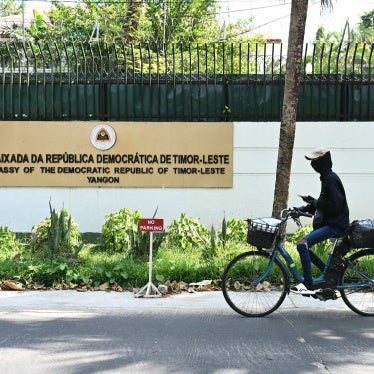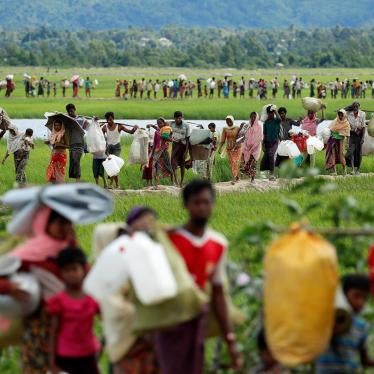On November 18, 111 nations stood up for the people of North Korea at the UN General Assembly. They voted for a resolution calling for international justice, in line with the recommendations of a recent 400-page UN report that detailed horrific crimes against humanity in North Korea.
Among the 20 African states voting yes were Botswana, which co-sponsored the resolution, as well as Burundi, Cote d’Ivoire, Rwanda and Somalia, which have themselves suffered serious crimes against humanity. All 20 African states voting for the resolution should be commended.
But other countries that have historically supported the annual North Korea resolution—and that are, incidentally, members of the International Criminal Court—abstained this year, including Gabon, Gambia and Tanzania. Significantly, Senegal, poised to become the president of the ICC’s Assembly of States Parties, also abstained from condemning North Korea’s human rights atrocities.
Why did some of these African nations switch their votes and why did 27 African states abstain in the face of human rights violations that the UN report characterised as being “without parallel in the contemporary world,” perpetrated “pursuant to policies set at the highest levels of the state?”
Frustration over ICC
One reason may be related to a sense of frustration among some African states, given the ICC’s near-exclusive focus on Africa to date. Yet the North Korea case is an opportunity for African states to show that they stand with victims of horrific abuse, wherever they may be. Indeed, the possible referral of North Korea to the ICC is long overdue.
The record of North Korea on human rights is a glaring challenge to international law and to the commitment of the world to seriously call Pyongyang to account. The support of African states is critical to counter the government’s tired narrative that any push to improve the human rights situation is a plot to overthrow it.
Another possible reason is North Korea’s recent “charm offensive.” In the months leading up to this historic vote, the fear that North Korea’s leader, Kim Jong-un, could one day be forced to account for his crimes pushed Pyongyang’s international lobbying to unprecedented levels.
Diplomats have fanned out from Russia to Brussels to try to head off the accountability effort. Africa has also been a target of this charm offensive: Kim Yong-nam, the president of the North Korean parliament, recently visited the Democratic Republic of Congo, Sudan and Uganda to seek support. Congo and Uganda were among the states that abstained, while shamefully Sudan, Egypt and Zimbabwe were the three countries from the region that voted no.
North Korea changes tack
Moreover, for the first time since the mandate was created in 2003, last month North Korea diplomats met the UN special rapporteur on the human rights situation in North Korea, dangling the possibility of a visit in exchange for deletion of key language on accountability in the resolution. But once it was clear that accountability wasn’t up for negotiation, North Korea issued an angry statement saying it wouldn’t consult anymore.
Clearly, North Korea’s desire to engage is only on its own terms, with the primary objective to avoid justice for crimes against humanity.
But African states that abstained on last week’s vote have another chance to stand on the right side of history when it comes to North Korean regime’s brutal abuses.
The full UN General Assembly will consider the North Korea resolution on or around December 15, and governments—including Senegal—should vote yes. Such support will send a clear message that the world stands with the countless victims who have been tormented by North Korea government. And it would help isolate North Korea and its allies who prefer to look the other way when crimes against humanity are committed, and show that international justice truly applies worldwide.









